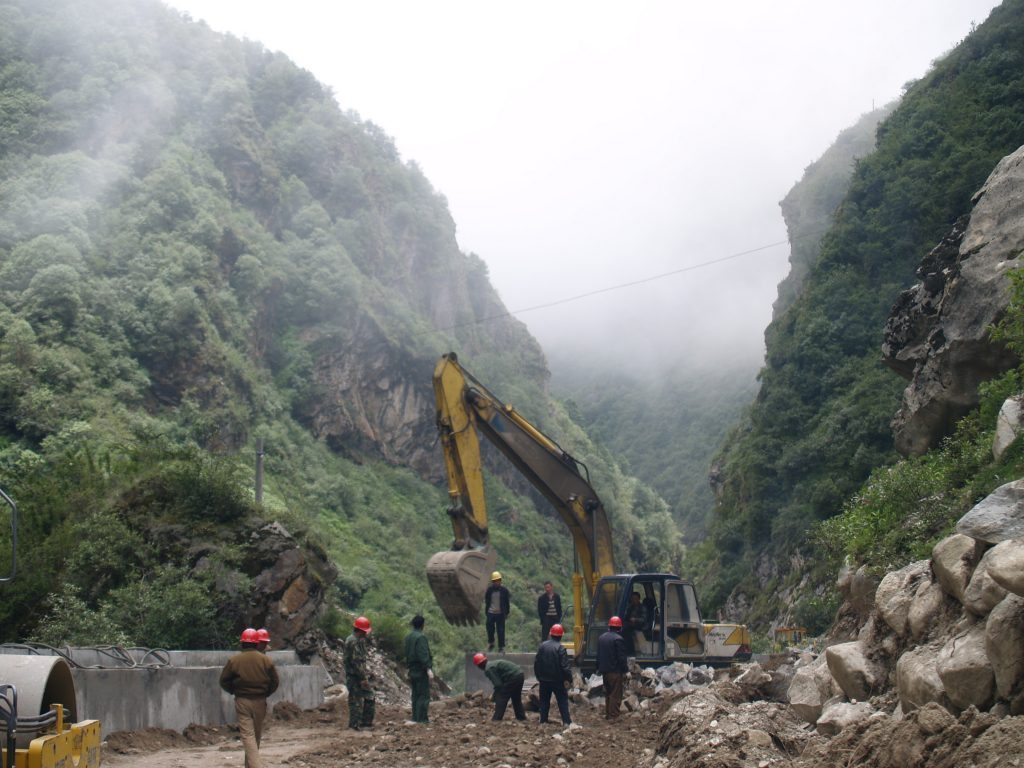
Provincial budgets are barely uncapped so far: at the presentation of a Nrs. 1,2 billion budget in Karnali earlier this year.
Well, according to provincial as well as federal officials, the answer is simple. The main cause for low spending is a serious lack of staff. The federal government has yet to ensure that adequate staff is hired and transferred to fill the provincial bureaucracy. Indeed, the provinces have a total of 12,900 staffers at this point – but their need is for at least 21,000 staffers! Frequent transfers of provincial officers, including senior staffers, are making matters worse.
Finance Minister of Province 2, Bijaya Kumar Yadav, explains: “The failure of the federal government to depute necessary staff to the provinces and the frequent transfers of officials are the main reasons behind the poor spending.” Indeed, without the required staff capacity, such as engineers and overseers to approve development work, not to mention the presence of senior staffers to authorise expenditures, work is bound to be slow or not progress at all!

Without technical staff, and with frequent transfers of senior staffers, work is slow: a road construction site.
Yadav is not alone in making complaints. Many provincial representatives strongly criticise the government also for delaying the necessary legislation. So far, no laws are in place to allow the provincial governments to effectively hire their own staff. Some even speculate that the government is causing the current delay of the winter session of Parliament to stall legislation on the staff issue. Instead of facilitating legislation, the government has issued an ordinance.
The ordinance – the Civil Servants Adjustment Ordinance – was issued last week and received a luke-warm welcome. It provides for the immediate transfer of staffers from federal to provincial level. But there’s no guarantee that the adequate number of staffers will actually be deputed, legal experts caution. Even worse, the ordinance does not deal with the underlying issue which is a lack of legislation to allow the provinces to effectively hire their own staff.

The Civil Servants Adjustment Ordinance, signed by President Bidya Bhandari on December 10, retains federal control of staff hiring at provincial level.
That’s not the only reason, though, why provincial spending is so low. Not only does the federal government retain effective control over staff hiring and transfers. It also refuses in practice to relinquish control over the ongoing 1,100 or so regional road projects. The government is to hand over implementation of these projects to the provincial governments. But so far it has only let go of one! So, next to no budget is spent on that account, either.
Government spending usually picks up in April towards the end of the fiscal year, and so the same might apply in the case of provincial spending. But until now, mainly due to lack of staff, the provincial governments are still far behind. Will they face further delays in the delegation of power and staff and consequently remain unable to spend their budgets? Well, a recent inter-governmental meeting resulted in some optimism. Time will tell whether it’s justified.
PS: Staffers at central level are against the ordinance mentioned above because it seeks to force them to accept positions at provincial and local level. They will get sacked if not assuming assigned positions within 35 days. But some legal experts caution that the ordinance in fact exempts staffers of several federal ministries, just as the Public Service Commission may take the side of staffers who refuse to accept a transfer. To what extent this is true, or whether the ordinance will indeed solve the staff issue, is for the coming months to show.
Also said about the staff issue in the provinces
“We have been unable to send enough staff to the provinces due to lack of enough numbers [of staff] at the Centre for mobilisation to the provinces and local level.” Suresh Adhikari, spokesperson, MoFALD.
“The lack of adequate staff has affected budget execution. Even the conditional grants allotted to the provinces for specified projects have not been spent.” Sishir Dhungana, Department of Revenue Secretary.
“The status of capital expenditure [i.e. development projects] in the provinces is even poorer. In the given period, Province 1, Karnali and Sudurpaschim provinces failed to spend a single rupee of the capital budget.” Prithvi Man Shrestha, Kathmandu Post.
“The government should have tried to call the House session at the earliest and fast-track the process of enacting necessary laws, so as to facilitate hiring of civil servants at provincial and local levels.” Editorial, Himalayan Times.
“Civil servants cannot be forced to choose adjustment. Forcing them to join other tiers of government cannot help bring optimum output, rather such an act can derail the entire adjustment [of the civil service] process.” Dharnidhar Khatiwada, former federal-level secretary.

